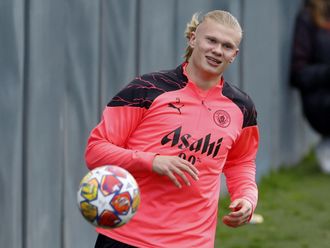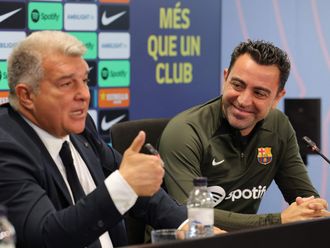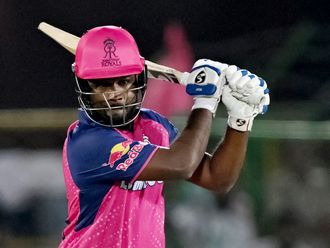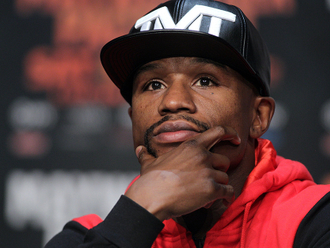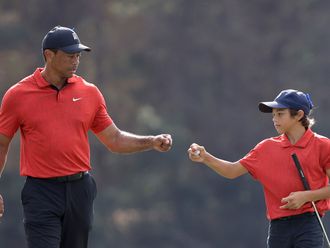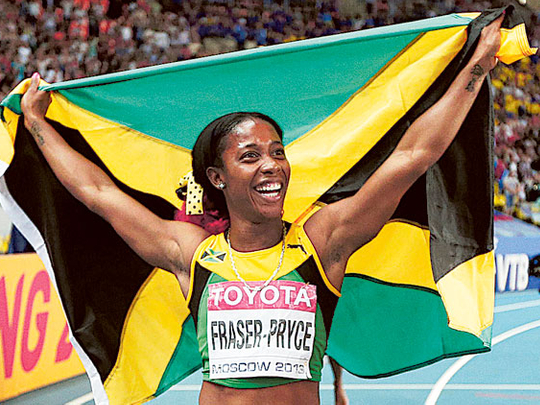
Moscow: Shelly-Ann Fraser-Pryce may not be a crowd pleaser or have the records of fellow sprint champion Usain Bolt but her battle to rise out of poverty to become queen of women’s sprinting says a lot about a champion’s drive and mental strength.
The 26-year-old with a smile almost as wide as her winning margins stamped her mark as one of the greatest sprinters of all time on Friday when in Moscow she became only the third woman to complete the 100/200 metres world double.
However, aside from sporting partly-dyed pink hair to go with her pink nail varnish and pink running shoes, and being a class above her rivals on the track, to many her diminutive size (she stands just five feet tall) reflects her profile off the track — almost invisible.
That, though, is part of her personal magic and charm, doing endless charity work - she is a UNICEF Ambassador among other things - especially for children but always with the minimum of fuss, content to lend her name to what she considers worthy causes.
“If you understand Shelly, she’s a behind-the-scenes person,” her local priest Senior Pastor Winston Jackson told Jamaican newspaper The Gleaner last year.
“If she’s going to help somebody, she will do it in private. She doesn’t like all the excitement.”
Her work with children has a personal side to it after a childhood that saw her grow up in a violent ghetto in Kingston — a cousin was a victim of it - but where she refused to lie down and accept her lot was to just survive.
Much of this steeliness was infused into her psyche by her mother Maxine — who brought her and her two brothers up on her own like so many single parents did in the Waterhouse neighbourhood — with the diktat being: ‘you have a talent go and use it.’
“Now it’s Jamaican women and children who are my inspiration,” she said in 2009 shortly after she had added world 100 metre gold to the Olympic title from Beijing.
“I see a lot of things they go through as single parents at 16 having a child which keeps them staying in the same economic situation as their parents. They never leave.
“So I try to be an example for them, that they can still succeed. I can try to talk to them; finish high school, don’t get pregnant at a young age, don’t be hanging out on the streets. Just do your schoolwork, focus on a sport if you’re good at it, do what I did.”
Fraser-Pryce, who married her long-time boyfriend Jason Pryce in 2011, will forever be indebted to her mother and whom she was at least able to repay part of what she owed her with the relative riches success has brought her.
For money was not even an issue in the Fraser household — indeed household would be a grand term to describe the shack they grew up in - as there was often none even for food if Maxine didn’t have a successful day selling goods on the street.
“She was strict with us and worked hard as a street vendor to make sure we went to a good school,” Fraser-Pryce said.
“It was hard for her. Sometimes, we didn’t have enough to eat. I’d go to school with no lunch money and my school would have to provide it.
“My mum wouldn’t let me go outside. Coming back from school, the gang men sometimes would say things but I would walk by, never answer and my mum would go tell them leave me alone.”
Such a tough upbringing forged a spirit in Fraser-Pryce that has borne fruit in stunning fashion but it took her a while to realise how she could make her life different to those of her mother and many others.
“I used to think I wasn’t good enough to go to the Olympics, until I realised that only I can be in charge of me. That was when I started to focus,” she said.


